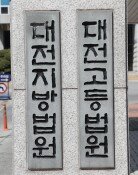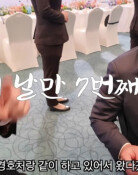Government`s Tax Plan Angers Parents
Government`s Tax Plan Angers Parents
Posted February. 08, 2006 04:30,
The government is considering a 10 percent value added tax (VAT) on Hakwon (private education institutes) tuition fees, such as tutoring institutes and cram schools, starting next year. Hakwons and parents are reacting strongly against the plan.
Parents are feeling burdened because the imposition of a VAT on lesson fees is equivalent to a tuition hike, and the education industry is worried that their enrollments will decline as a result.
Hakwon Group Preparing Countermeasures-
After Dong-A Ilbo ran a story on the governments VAT proposal, the Korea Association of Hakwon summoned the Seoul District President Group and discussed the consequences effects of the VAT.
The association will also hold a meeting attended by member presidents representing their districts and provinces on February 14, set up a committee to devise a VAT counter plan, and inform the government of their opposing stance.
An association official pointed out that general tutoring institutes are heavily attended by working-class children, while their wealthier counterparts get costly private tutoring. He also said that if the imposition of the VAT leads to a 10 percent increase in lesson fees, many people wont be able to afford Hakwon.
The Hakwon industry is worried that the VAT might be a disheartening factor in light of the economic downturn. In particular, small tutoring institutes run by 1-3 people are expected to be hit the hardest.
The Ministry of Education and Human Resources Development said that cram schools and tutoring institutes made up 24,592 of Koreas 70,685 educational institutions, 34.8 percent of the total, as of June 2005.
A Mr. Ahn from Seongbuk-gu, Seoul who runs a Hakwon for middle school students, was worried. Im concerned about what might happen after the VAT is imposed because even now, parents complain about the current 200,000 won per month lesson fees. I might have to close my business because most small Hakwons are on the verge of failure thanks to competition from online education companies.
A Mr. Lee (44, Gangnam-gu, Seoul) who operates a tutoring institute, says, It is likely that many small Hakwons will end up paying the VAT themselves in order to maintain the status quo. I will do illegal tutoring or run a study room if the VAT passes because Im already paying a 3.5 percent credit card service fee.
Stock analysts are predicting that online education companies will benefit from the situation because their lesson fees are relatively lower.
Sohn Eun-jin, a department manager for the online educator Megastudy, said, Parents feel burdened by an increase in lesson fees of even 10,000-20,000 won. Lesson fees of online institutes are a third of what Hakwons charge, so online institutes can expect an enrollment surge if the VAT passes.
Does the VAT Target the Working Class?-
Parents are complaining that the VAT on lesson fees goes against the governments promise to address social polarization.
Ms. Hong (34, Yeongdeungpo-gu, Seoul), the mother of a would-be elementary school student, said, Sending a child to a tutoring institute costs 230,000 won a month. If the VAT is imposed, it will cost 250,000 won. Households with more than two children will have to pay more than 100,000 won in VAT.
Ms. Kim (41. Gangnam-gu, Seoul), a mother of two, said, I pay 700,000 won for my younger childs lessons and 500,000 for my older ones, for a combined 1,200,000 won a month. The VAT will be a huge burden on parents who pay their childrens lesson fees by taking extra jobs such as housekeepers.
One netizen said, Only one or two weeks after the presidents New Year speech in which he said he has no plans to increase taxes, a series of tax increase plans was released. It does not make sense to discourage parents from giving their children a private education while public education is unreliable.
Soo-Jung Shin crystal@donga.com ceric@donga.com




![“배달 시키면 버렸는데”…피자 가운데 ‘그것’ 200% 활용 꿀팁 [알쓸톡]](https://dimg.donga.com/c/138/175/90/1/wps/NEWS/IMAGE/2026/01/07/133111146.3.png)


